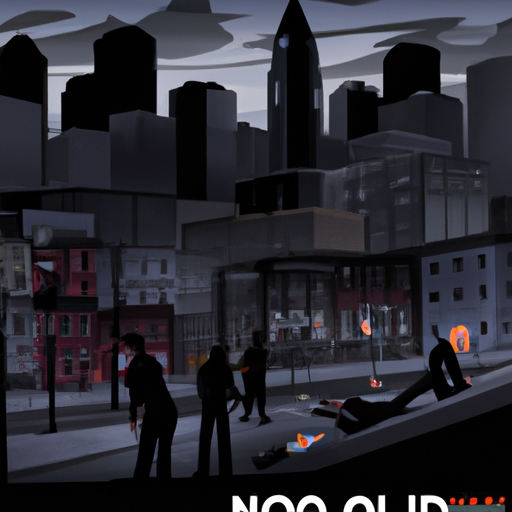The Ongoing Canadian Opioid Crisis and Its Consequences: A Close Look at Nova Scotia
Canada is facing an ongoing challenge, one that is silently marking its cycle on our society, draining our interdisciplinary resources and, more critically, claiming hundreds of lives each day. This perpetual crisis? The opioid epidemic. A province that is particularly affected is Nova Scotia, which has been dealing with increased addiction problem as a result of prolonged opioid use. This article sheds light upon the severity of the opioid crisis in Nova Scotia and how the authorities are tackling the problem.
The Impact of the Opioid Crisis
The impact of the opioid crisis is as profound as it is devastating. The effects trickle down to all levels of society, whether directly or indirectly, leading to an escalated societal cost. The article highlights the correlation between opioid use and crime, homelessness, and other socio-economic challenges. One highlight from the article was a report that indicated that the Halifax police are responding to an average of 60 opioid-related incidents each month—double the number from just two years ago.
Drugs and Crime
The correlation between drug addiction and crime is not a new revelation. Crimes are often committed by those desperate to support their addiction. In the context of opioids, individuals who are incapable of accessing prescription opioids often resort to illegal activities to obtain these substances, or they might transition to other illicit drugs such as fentanyl, heroin or cocaine to manage their withdrawals.
Homelessness and Addiction
The link between homelessness and addiction is also closely knit. Not only does substance use result in homelessness by affecting an individual’s ability to maintain stable housing, but the sheer conditions of homelessness can lead to substance use as a coping mechanism.
Tackling the Crisis: Nova Scotia’s Steps Forward
The authorities in Nova Scotia are not standing idle. As per the CBC article, there have been several strategies implemented to combat the opioid crisis. They include:
- Access to naloxone kits: In an attempt to mitigate fatal overdoses, the authorities have made naloxone kits widely available throughout the province. Naloxone is a life-saving medication that can reverse an opioid overdose.
- Use of opioid class action money: The National Class Action lawsuit against opioid manufacturers and distributors has allocated funds to Nova Scotia. These funds will be allocated towards addiction services.
- Amendment of Federal drug law: The CEO of Nova Scotia’s College of Pharmacists has advocated for a nationwide exemption to the current Federal drug law, which could potentially see healthcare professionals being allowed to provide pharmaceutical-grade opioids to those suffering from addiction. This would be a significant shift towards treatment.
Opioid Crisis: A Matter of Urgent Attention
The opioid crisis is one of the most significant public health issues that Canada currently faces. For effective and long-lasting solutions, a collective effort is imperative. Education, awareness, and the de-stigmatization of addiction must be prioritized. We need to focus on developing comprehensive treatment and harm reduction strategies, which would include ease of access to opioid-dependency treatments, the development of safer prescription practices, and the continuing distribution of naloxone kits.
In conclusion, the opioid crisis in Nova Scotia, like the broader Canadian opioid crisis, is an alarming public health problem. The multi-faceted and systemic consequences touch upon numerous societal issues and hence, require a coordinated approach to address them. The associated homelessness, crime, and other socio-economic challenges reflect the need for long-term, sustainable solutions. The recent push for changes in Federal drug laws, usage of opioid class action funds for addiction services, and easier access to naloxone kits are some steps that inspire hope, courageously navigated towards a future where opioids cease to control the lives of those entrapped in its addictive snare.
